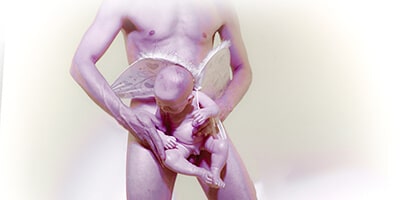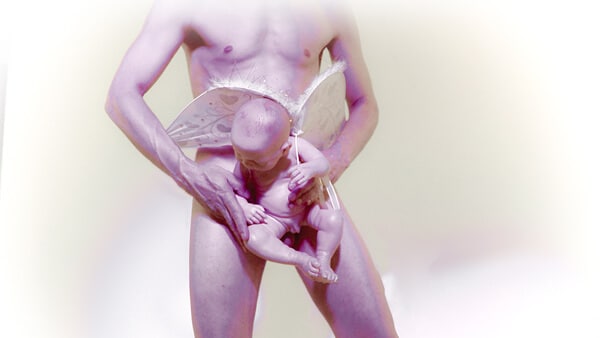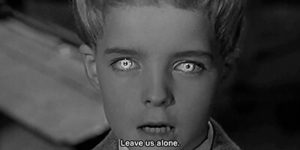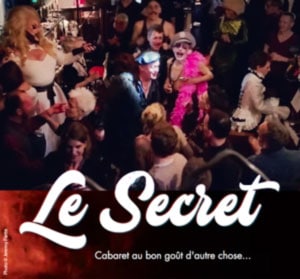WHAT IF IT WAS YOU?
The movement of deterioration of social protection in general and support for cultural facilities in particular is accelerating in our country. Everyone except those in charge of redressing the situation seems to agree on this. No need to blame them for this unfortunate bad faith, the political spirit is designed to deny the obvious. Therein lies its survival; in a perpetual maintenance of a messianic better life whose population, even if it pretends to defend itself from it, adores images and allegories. Even if the imposture of the Wizards of Oz is publicly unmasked, everyone secretly shares with the little Dorothée of the tale, the nice hope that it would be enough to follow a wonderful yellow brick road to get out of trouble. I haven't read the book and have only a distant memory of the film, but the songs, as is always their role, compensate for these small drawbacks in favour of a simple and powerful general idea. In this case, we can feel the full economic impact of vain hopes, so palpable at the moment.
The Wonderful Wizard of Oz! Somewhere over the rainbow, way up high, There's a land that I heard of, once in a lullaby...
A clear road is what many people are looking for and sometimes believe they see in the distance in the geography of their future. But for many, the horizon turns out to be a painted canvas and the journey, the cyclical movement of a carousel turning on itself.
This is very often what I feel in these moments when the suffocating breath, too long contained, would like to amplify itself according to its real needs and once again operates only a new repressed revolution, coming up against the perpetually uniform surface of a glass sky. I obviously share this situation with many others, whether artists or not, but I ignore it in reality because constantly with my nose in the handlebars of the little bike that carries me, I am too preoccupied with taking the least chaotic paths and slaloming between ruts. I'm not very good at it. No time to admire the landscape. Yet, in terms of efficiency, there is no overriding path that would allow me to chart the course while taking the time to improve the conditions of everyday life. A vicious circle, my path is in fact a sidetrack; a small Escher-like time loop, the layout of which always takes me back to my starting point. The evolutions, when there are evolutions, are made by progressive raising of the level which carries my infernal circuit. As in a grotesque merry-go-round, the illusion of ascent is only there to make the fall feel better. At each higher level, the vertigo of a new degree of descent accompanies what was only a volute in the air and the ride can resume at its lowest point. This perpetual and implacable movement is not unknown in the lives of artists, if only through its bohemian iconography and romantic appearance, out of the image of the chosen few, climbing the ladder on the golden road. For all of us, artists or others, many degrees of misery loom, if we do not already find ourselves perched on one of them that we believe to be the highest, abused as we are by the lack of visibility around us. Yet most of us have only climbed a few steps up.
I talk about "artist", but I've come to loathe that term. Some people like to root themselves in this poetic and whimsical soil to characterize their status. I have to say that when I take the time to not simplify things for the sake of speed in conversation, it's not my choice. Not out of false modesty since I sometimes value my work, but because I truly prefer to leave to others the hiding place that this word can represent when it only serves to give an appearance of creative vitality to the distress of producing only what the context and one's own abilities allow within the limits of that situation. Everyone will agree, I imagine, that it is not enough to be "entitled" to be, whatever one's claim may be. The same is true of the lofty and prestigious titles that our social structure is studded with, to use the brilliantly enshrined expression, "to the highest levels of the state".
Yes, likewise, it is not enough for Culture to have a Ministry for it to find a raison d'être through it, nor for the officials who maintain its existence and theirs. As said before in substance, the whole art of politics is contained in its capacity to affirm, without leaving room for doubt, that its function is indispensable to the common equilibrium. And yet!
What a brilliant and skillful manoeuvre to have endowed France, a land of art and scholarship, with a "Ministry of State in charge of Cultural Affairs" since its creation in 1959, later metamorphosed into a "Ministry of Culture and Communication"!
It is difficult a priori to criticize the praiseworthy intention to organize the management of the heritage and to enhance the value of artistic creation; moreover, it is difficult to denigrate the concern to promote the democratization of culture and its influence in the world. Protecting its authors from the savagery of the law of the market is, over time, another of the key arguments that have come to justify the benefit of government interference in artistic affairs, particularly through subsidies.
Going quickly, where we can recognize a notable difference between the Malraux era and the Lang reign, is in the implementation of a pedagogical mission in the second period, when the original vocation of this beautiful institution excluded this aspect in favour of the intrinsic value of the work as the only means of transmitting the "feeling of art" to the general public.
The road to hell, as we know, is as paved with good feelings as the road to the Wizard of Oz is paved with sparkling golden bricks. Nociousness.
Artists, who have not been completely diverted from their instincts by hypocrisy and submission to the hand that feeds them, have, fiercely anchored in a corner of their heads, this certain feeling that making the gratuitous and marvellous incongruity of the spontaneity of their gesture "accessible" can go against its very essence.
Thus, through a "benevolent" undermining of high places, a formidable machinery has been cleverly designed to try to destroy any desire for ethical and aesthetic independence among the desperate creators. With a great deal of socio-cultural spread, from "machinery days" to "trick festival", the artist, whose egotistical substance must be exclusively attuned to herself, has found himself called upon to moderate her true, naturally subversive singularity into a vast celebration of sharing at all costs. The audacity that still provokes incredulous admiration for the great works of art of all times exhibited in museums is precisely what the cultural institution abhors and stigmatizes as small, marginal delusions among those most resistant to the great heritage project. There is nothing new in the spheres of the "all consumable" except the demagogy of its argumentation; of the hollow, the wind, the soup and still, not even really popular!
It is not to be elitist to assert that the path is necessarily arduous to tread in order to reach the understanding of a work; just as it was to give birth to its creation. The viewer has to go backwards from the created object if he wants to understand the nature of the fibres that make it up. Shock is essential, salvific rejection. We don't like art like a candy bar lining our taste buds with a moment of sweetness. One digs with one's nails, primitively, passionately and perhaps, one day, one understands; one reveals oneself to oneself through this strange mirror made of scattered pieces. For it is to oneself, in the depths of consciousness, that creation is addressed. It is there, in the crucible of the intimate that it takes on its meaning, as much for its author as for the one who tastes it. It is to a widening of the gaze and of the mind that it aims at, and this only happens through a rough transfer of emotion, through a perception not softened by a false preparation.
Real teaching teaches how to "do", to understand through experience and feeling; and does not lead to consumption by media gorging. The fast food organised for "big" events only tends to pile up a wealth of junk. A vulgar boast encouraging the "I'm everywhere" attitude of the cultured consumer, the multiplication of the offer is hardly better than the plethora of yoghurts on the shelves of supermarkets. "Consume less to digest more" should be a responsible slogan in terms of encouraging people not to become a blissful sheep ruminating on the crop and, what is more, conceited to its quickly acquired slight knowledge.
This inevitably raises the tedious question of how to differentiate between "good" and "bad" and its no less exhausting corollary, which is to deny that such a difference can be made in such a subjective matter. Only, the sacrosanct argument of subjectivity does not exclude the imperious necessity of knowledge. This is indeed one of the definitions of the famous Culture. Without reflection and acquired knowledge, there is no chance of really appreciating what is foreign to us. This is where the snake bites its tail most ferociously. If you have to know in order to understand, how can you understand what you don't know? Well, in my opinion, simply by working. And when I say "simply", it is obviously one of the most imprecise, complex and entangled tasks there is to build a truly personal culture and curiosity. The advantage of embarking on such a process is, of course, that it involves a certain evolution. And even to "fundamental" changes in one's whole being. Thus, and here again, I have to skip the steps, it is a question of opening up to the unknown and therefore to put aside for a sometimes very long time, his determined ideas about good and evil, good and bad.
Apart from their different grammatical nature, "good" and "bad" are not subject to the same subjectivity as "good" and "bad". One could say, again quickly, that "good" and "bad" are lower-level concepts in the hierarchy that is usually established to describe our qualitative values. Declaring a good or bad act seems more naturally subject to debate than when we appeal to good or evil to stigmatize the inspiration for a gesture. The surrounding violence can only corroborate this postulate. For most of us, we seem to find it easier to agree on the founding and vital principles of our democracy than on personal tastes, which are most often tolerated as a matter of individual freedom; these, of course, being accepted only up to certain limits defined by the laws. These, of course, are accepted only up to certain limits defined by the law. "Doing good" and "doing evil" are two concepts that are clearly absolute, moral and mystical, where the production of "good" or "bad" would belong more to everyday life.
Simplifying these characteristics further, the reasoning leads us to reserve "good" and "bad" for the civil sphere, while "good" and "bad" cannot be divorced from a religious ethic. There is nothing really new, you will tell me, in evaluating this typological aspect of our language in this way, and indeed, I am not trying here to embark on a conceptual and relativist revolution that I cannot carry out, but rather to base my digression on codes that are well known to our society, but which need to be redefined in order to go further. Any research or demonstration, whether empirical or based on accepted principles, requires isolating the supposedly constitutive elements of an origin at the source of what we want to demonstrate, even if it means recalling the obvious.
My small foundations having finally been laid, I would like to make it clear that, in the lines that will follow and close this small presentation of my views, I do not claim to be a philosopher - not even in a small way - nor do I claim to be anyone other than an individual whose sphere of activity is around the stage, interpretation, representation and writing. So that brings me to my basic subject. In this case: Who decrees what and according to what criteria? And secondly: What are the consequences of the establishment of a subjectively meritorious hierarchy, for those concerned and for the whole social group?
WHO DECREES WHAT?
It is evident that little has changed since the abolition of court privileges and intrigues. Our famous revolution of 1789, an overused reference which is certainly beginning to date a little, seems, at best, to have shifted this state of affairs towards a confused and complex pyramidal and administrative system; at worst, it has adapted these prerogatives to the point of making them infinitely less visible by hiding them under the folds of the virtuous republican toga. The fact remains that equality of opportunity is a burning issue on the scale of a social world that has still not been able or willing to move towards real justice. The expression "equal opportunities" is something to smile about, since its paradox so frankly clashes with the rules of nature.
What could be more antipodal than the notions of "chance" and "equality" in the environment where we develop and on the planet that hosts us? Who in the world is unaware that luck is a matter of chance, whereas equality presupposes the voluntary involvement of a completely artificial structure to achieve equality? Yet nature, including in human societies, always prevails in the end, interwoven as it is in our emotional fibres. Unless there is a determined utopian will, coupled with fierce ethical self-policing at all times on the part of each and every one of us, I do not think it is very bold to claim that the pretty word equality will never be as tangible in its effects as the stucco decoration on the frontispieces of our official monuments. And then, I am told, what does this cherished concept have to do with more than free access to all in terms of the possibility of evolution and realization?
In other words, since there is no official censorship, are we not free and equal before the possibilities of "doing", if we disregard the more or less favourable family contexts that must be taken into account? What prevents anyone in this country today, if not to undertake, at least to try to start the minimum beginning of the realisation of a project that is dear to him or her, or even a project concerning his or her entire professional life?
On paper, or rather, legally, apparently nothing.
Everything even seems to be designed for this purpose. Everything is there to encourage and accompany the energetic fervour of the project designer. Devices rain down on every page of the websites of the administrations dedicated to this noble task. As regards more specifically the artistic matter, creation aids, calls for projects ... the inspired creator is drowning under the enchanted vomit of a horn of plenty of financial and logistical support to carry out his dream realization. It all seems to be settled like music paper. The socio-cultural state seems to be telling us: "When it comes to support for creation, I'm on top of it! ». The stage for a fantasized democratic masquerade is set and solidly planted; once again, nothing new under a sun barely eclipsed by a gentle irony in my remarks. Let's dig deeper.
The step-by-step abandonment of openly official censorship on the part of a state that previously proudly brandished its moral limits is the stroke of genius of the Fifth Republic.
On the face of it, the state condemns nothing, except that which offends both bourgeois and popular morality and which has every chance of crystallizing a consensus. In the background, skillfully delegated to its administration, all excesses are allowed, all abuses are perpetrated. Whatever the field, there will always be the text, the paragraph or the commission that will be able to endorse the fateful refusal against which the citizen can do nothing, so much the procedures would be either simply impossible because they are not provided for by the various legislations, or too confused or tedious to come out victorious unless one is a lawyer or a specialist himself.
When it comes to art and culture, the famous commissions of experts, the cohorts of advisers and the little hands of the system are there to watch over the grain and maintain the dubious necessity of the existence of their office.
How can we blame these wise men of the cultural institution for constantly persuading themselves of their usefulness and the validity of their actions when their salaries depend on it? What could be more natural in these times than to do everything possible to justify and preserve one's place? If, by any chance, some of them are worried about this, let them rest assured, no, I don't blame them.
I do not curse them any more than I hate the ants who, in their perpetual search for food, risk going beyond the limits of my yard to enter my house and into my closets. I observe them; I divert one or two of them out of kindness of heart and occasional ecological consideration, then I drown without further ado the rest of the adventurous colony under an intensive sprinkling of a dreadful white powder that is terribly toxic. I watch the unfortunate ones contort themselves under this fatal snow. Then I suddenly feel a little sad thinking about the life that animated them and leave them little by little because of my only capricious reaction as an animal measuring more or less 340 times their size. But doesn't everything in the universe boil down to this rule, so unsophisticated that we are used to call "The law of the strongest"?
Who am I to destroy in this way animals capable of such an elaborate social structure and whose physiology contains hundreds of physical and sensory abilities of which I am totally devoid? I am redeeming myself a little in my own eyes by telling myself that I am at least aware of the harm I am doing to this population, whose degree of feeling I do not know. In that sense, I am not a political animal. As they say, a little too easily sometimes, for lack of restraint, "I assume my act". Every time a similar situation arises, involving people who are powerless before me, the question comes to me. What power, isn't it? It would seem, in view of my rather marginal situation, that there is something to laugh about. And yet there is not. For that is what it is all about: Power, which we can all exercise by our physical and intellectual constitution, in one place or another, over our environment and our surroundings. The action resulting from this power can be divided into three possible ways, except for the one that consists in simply ignoring reality. The first and simplest is to "destroy" as I did with those ants. The second leads to "build", to elaborate solutions. The third consists in "letting things move", which can in a certain way mean abstracting from them. The one that I wanted to leave aside as it concerns you, institutional friends, is to "act as if". To pretend one would say in an English that reasons so much more accurately to our ears by its similarity in sound with our claimrather than pretendin this case.
Whether they are invading ants unconscious of invading or individuals in a position of fragility towards me, the victims of my power invariably ask my conscience the question "Why? "Why" is the only answer to what is disturbing us other than to remove it from our sight in one way or another, when other options, certainly more laborious, are open to us?
The answers are immediately obvious, as we know so much about human nature:
By ease, by stress, by lack of ideas, by a lack of study of the reality that imposes itself, by short-sightedness, by cowardice, by disbelief in the value of others, by ignorance and fear of what is not oneself and one's restricted universe, by lassitude, by instinctive rejection, by fear of being taken too far away from one's psychological reference points, by lack of time... As we can see, there are all the reasons in the world for not placing sufficient value in one's eyes on what one does not understand. The worst thing is that all of them are potentially good, since, as the introduction to this text laid the foundations, they are a matter of taste or orientation, sometimes wrongly called "skills", and the judgment that accompanies them does not fall into the fundamental categories of good and evil, but simply into the evaluation of good and bad.
Fortunately, you are not, dear experts, qualified to be judges beyond the opinion on a few pages of a presentation file trying to make you understand the unspeakable of what makes a project out of the economic criteria; that is to say, a fundamentally and joyfully useless project that we call "artistic". What is tangible before our eyes makes all the difference with what we do not distinguish. Being unable to discern the carpet mites in the pile of my carpet, I do not track them down from day to day, unless I am reminded of their possible harmful presence after a few sneezes and vague generalist readings suddenly collected on the subject.
The same is true of the forms of expression and action expressed before you, the judges and school markers of the State, who do not have the talent to be lathered up in the invigorating freshness of the air of the times. That's the way it is, let us not lament.
Where there is more to be said for the legitimacy of the personalities that make up the fabric of the Ministry, rather than for the choices made by individual delegations from the Ministry's prominent member of culture.
At this point, don't play us, dear institutional friends, the statue of the Commander.
We, those who are not used to courting you, to stirring to your enchanted ears the phraseology that sounds delightfully in the style of the moment and that you think is right, are still a little bit of the game and for as long as you have. We are well aware that, apart from a certain knowledge of the administrative field acquired late in life or on the university benches, you are neither more nor less qualified than we are in terms of artistic judgement. We, who sometimes have the weakness to submit our projects to you and the main defect is to be on the other side of the fence. Yes, the generational balance more or less reached by the force of things, we are both finally in our nails. We know very well that you and we, that we are at the base, more or less brothers and sisters in arms, coming from the same distant youth and neighbouring backgrounds. With our passion for the performing arts, we have of course sometimes rubbed shoulders at random with each other's productions. We even read each other at times; in a few cases, we even nurtured a certain mutual admiration when difficulties and mistrust had not yet completely hardened our leathers and hearts; and we could, if we had wished, find ourselves with as much relevance sitting in your seats and in your seats at the moment. Ex Jeune Garde; promising authors, brilliant directors, visiting journalists, minor politicians or future cultural attachés; we have already seen each other and know each other in substance.
In any case, we know and instinctively remember who you are and where you come from, whoever you are, even when we don't know you. No doubt because of this, we are sometimes more awkward than young artists full of promise, our eyes naturally misty with narcissism, our chests full of ego, only seeing in you with an interested eye, only wise white beards and a wise look; sometimes even receiving a friendly pat on the back with emotion, as can be the support of a benevolent shoulder. Under these conditions, it is obviously more difficult to make the cinema of the consortium of competent professionals, trying with seriousness and humility to unearth the brilliant pearl of tomorrow's dramaturgy.
No sincerely, and this seems to me to be only natural, whatever your brilliant record, none of you, more than another from the same cauldron, has the competence to determine what is good or bad, what deserves support and what should not be supported in any way. You can't have it, since our whole little community is spawning with more or less luck and happiness in that in-between-self that everyone here, near or far, has been frequenting for so many years. As one potential president of the Republic once said in similar terms to another, we could say to you "You are not the teachers and we are not the students". To which you would easily and shamelessly reply, 'But you are quite right, ladies and gentlemen, the pupils'. On the other hand, and unfortunately for us, we cannot deny that it is you who do have a monopoly on "butter". Once again, we are the same, except for one courageous step.
Elysian Nociety | I put the angel
CONSEQUENCES OF ESTABLISHING A SUBJECTIVE MERIT HIERARCHY
If it is certain that many of you, as in the time of our adored Beaumarchais, have only taken the trouble, not to be born, but to make the customary reptations to be where they are, another of our beloved authors will also come to my aid through the wounded voice of Arsinoe, to proclaim to your faces that Admittedly, you boast of a very small advantage. No more than for the beggars that the system compels us to be, in your case, the function does not make you either man or woman.
The crutches that you sometimes deign to hand out to us when our productions seem worthy of compassion for the handicapped that we are, turn out to be deadly traps similar to the iron jaws that violently grasp the leg of the adventurous wolf. Lurking too close to respectable dwellings, species of our kind are, one cannot but officially consider them as polluting and harmful. Nevertheless, it would be hasty and unjust to definitively close the file on these unfortunate creatures. It would be to ignore the "bait" carefully placed at the heart of the trap that represents: The Subsidy.
Attractive, meritorious, unquestionable in its substance, it is the piece of meat that awakens the appetite of the naive; satisfying that of the most roués.
Who's eating at that rack there? Who lodges, creates and lives on this miraculous manna? The dear intermittent workers who burden the budget? I'm not sure they're not always the same and less audacious ones. How much do government officials cost? Billions of euros goes without saying, and how could it be otherwise to pay so many salaries?
Who is the pretext for their existence and their maintenance? The foolish taxpayers that we all are and in our field, the thirsty beggars who still greedily hope for the welfare state.
Dear executors of the DRACs and other ministries, do you have the remorse guilty of killing by a perfectly sanitized process, where you sincerely claim to erect glorious architectures of justice, thought and aesthetics? What long-term "final solution" have you set out to achieve? Would you be the capos of a mild lethal diet? No, of course not, you are human, far too human for that.
We, who through our little ant escapes, from our deep burrows to the open air, are part of your raison d'être; your employers in a way, second only to you, are drowning in heritage, surviving, like the others, gorged with the culture and diversity you provide. What is the point, then, of returning to the subject, which is full of ambivalence, for the umpteenth time?
Well, ultimately and as far as I'm concerned, it's not to engage in a belligerent crusade and relieve my own mood to my sole benefit with a flood of invigorating insults. For a long time I have been largely accustomed to the idea that we have nothing to say to each other and that only a change of consciousness through a violent shock would prove beneficial. For my part, I really only conceive of flibustery, which unfortunately I do not indulge in, as an effective way of unsealing your coffers.
In fact, if I drink here the kind reader of an eternal diatribe, it is because, as it seemed inevitable that they would, your agents, dear Ministry, have in the battle, wounded in the flank, by a blow of cowardly and perverse Jarnac, a dear friend. By vicious willpower, clumsiness, vexation, lack of study and discernment; by ignorance and stupidity dare I say, your hock-breakers of the Regional Directorate of Cultural Affairs of Ile de France have created a waterway in the hull of a marvellous ship called The Generator, firmly moored in the town of Gentilly.
Fortunately, this unique space as a timeless experience will not die.
The freedom of creation and exchange that it offers and generates, outside of all norms, will suffice to compensate for the distressing withdrawal of these poor subsidies. For the time being, the fight lies elsewhere. It is against stupidity. Stupidity not to have the eyes, ears, nose and head to apprehend and understand an island of this value; stupidity not to look at its history. Its deployment in a few years speaks for itself, and your high authorities have had in hand the factual and precise elements to evaluate both its field of action and its cultural influence within its means. I do not need to recall them here.
Dear Ministry, which must have been so much a haven for me who wants to create, in more than 30 years, I have never been able to find refuge with you. You are not my homeland; you are not my symbol; you are a one-eyed, ugly whipping father like a rough and vain Cyclops. And here, once again, you have just trampled on a most delicate flower with your wandering gait. You pretend to cultivate authentic and almost organic art, but in reality, you behave like an intensively exploited tiller. You're a big oaf. Like a Midas king who turns everything he touches into academism, you're naturally on the verge of ruin and will always ignore the virtues of the impalpable and the unspeakable that resist your coarse powers. It is quite logical in the end; how could the organ of a state approach the margin without dissolving itself on contact with it and finally disappearing?
This letter addressed to whom, to what...? - perhaps to everyone far beyond you - doesn't even pretend to be a little paving stone torn from the pretty yellow road, to be thrown into the sad muddy ruts - will it ever be a pool for public opinion? - forming beneath your feet.
Once again, like thousands of other missives, it is just a speck of dust, destined, no doubt, to be condescendingly swept off a polished lapel before it has even touched the impeccable glass top of a vast desk overflowing with files.
Yes, far beyond you, giant pustule swollen with parasites, I appeal to overlook the cancer you represent. And if the removal of the excrescence informs us of our desires, which your power has inflated, seems beyond the reach of our feeble techniques, all we have to do is to live without knowing the disease you are the cause of. You will sag and collapse already, under the weight of your own inconsistency. A balloon swollen with appearances, you will one day pierce without even bursting into a notable crash. You are already oozing and oozing out of all your pores, like an overripe abscess. Come the time, soon, of your desiccation.
Let's dry the plant at its base. Let us privilege its ramifications of the oxygen that we represent and know how to plant something else.
Every action in our lives always leads in the end to a choice of society. It is useless to complain to others than ourselves when rot sets in and perverts a healthy body. No doubt we have malnourished it. It is up to the artists to be better, and it is up to the public to cultivate lucidity and discernment.
Art is neither pedagogy nor leisure and even less a matter of state, I repeat it as it appears to my conscience. It is a use, a way of thinking and reacting, an intelligence buried in childhood and which is still sought in the heart of emotions.
To be an artist is not to produce. Do we need it for our pieces, our music, our graphic designs as if they were for themselves? Aren't there not enough of them, and aren't they, in fact, pretty much all the same? What invisible market are we feeding, however small we are and who benefits from its lucrative spin-offs? What has always made the difference between things, and still does, is the spirit that drives us. It alone is unique and gives the colours to the translucent objects that are human works. No doubt we still do not feel oppressed enough in France, unlike in other countries, to remember that the intention of an act makes its value and its impact, much more than the result of a gesture made with the sole will to make it exist. The horror or the beauty will sit in the necessities set in motion. Our government, by being so much more left-wing than left-wing, sadly bears witness to this. So many dramas and failures because we do not ask ourselves "Why?".
But the rest of us satisfy almost everything... with a moderate growl.
What does this French people want if they exist, thus reduced to a supposed common desire, the terms of which are basically unknown to everyone? Others will always know how to answer in his place.
To be truly political is to refuse to become so as long as the essence of the word is so corrupted.
There's no civic consciousness in making art for art's sake, any more than there is in making art for art's sake, any more than there is in grunting without ever biting. To "do" really for oneself; to indulge in this saving selfishness without using anyone else as a justification for one's outspoken poetry is, in the end, to better understand what one is made of. Let each of us try to indulge in it, if only a little more, in depth, at a distance from conventional modesty, and then a different perspective could well be forged, one that is steeped in the paradoxes of our existence.
The Generator, far from being a stranded animal, is one of those rare organs, one of those fine instruments, which allows us to ask ourselves, outside of easy judgments, who we are at the moment we are living. It was so easy to strike with a shabby strategy, such a special creature, entirely made to scrutinize the present moment.
EPILOGUE
The grandmother of a close friend used to say of bindweed, "the foot is in Rouen".
Popular language has even named this plant, both creeping and climbing, "devil's guts" to describe the almost impossible and titanic task of uprooting from the source the establishment of this invader whose origin would be at the centre of the earth.
Undeniably decorative in small touches, it is infinitely harmful to the development of varieties of other less prolific plant species, whose growth it waits for to climb their stems, clinging to them and suffocating them by force of circumstance. Its devastating tracer root system, its speed of growth, its opportunism and its propagation in contact with loose soil make it the scourge of ornamental gardens and crops. Worse still, the chopping of its rhizomes into sections by the passage of a tool encourages its multiplication ad infinitum. The gardener who wishes to compose the landscape of his plot to his imagination will quickly find the delicate funnel-shaped flowers less attractive and work to destroy this insidious enemy, otherwise he will soon have nothing but a monotonous carpet of bindweed to admire. It should be noted that in its defence, as undoubtedly with all things, this voluble plant nevertheless has its good sides, since it is attributed laxative and diuretic virtues.
The so-called culture everywhere, social, diversified, it looks good on the surface, until we realize that there is only one robot without any aptitude for nuances, at the head of garden maintenance.
Of course, there are as many happy summer festivals as there are pedestrian streets and one applauds the monotonous homogeneity of this panel of offers repeated a thousand times throughout the territory. This year again, we will have spent some great moments in the sun!
Full of good feelings, wonderfully empathetic, Western cultures accept everything in their girons, as long as time has exhausted the tension of the muscle at its source. Punk is obediently displayed on the municipal cupboards and rebellious rappers squeeze official pokes without batting an eyelid.
What a bore, that variety!
The private sector, when it knows not to be old-fashioned by dint of mercantile thinking, is nevertheless at the source of many human resources, far ahead of states which are only one form among others of collective management. The private is the inner self; it is the heart of intimacy and singular thought. Yes, but Unity ... ah ! the beautiful word ! Do we not see the nauseous flow of this uneasiness, which comes from making us uniform by dint of flattery about "diversity"? Of course diversity exists, but it is not apparent. It is not in the colours of skins, communities, languages and cuisines that are only human variations full of charm but without distinctions that are so palpable. We are identical in fact and constitution of course. The self-proclaimed diversity is only superficial; another, more relevant, is found in the unfathomable multiplicity of connections of our neurons. It is only in the brain of each individual taken separately that the paradoxical and profound subtleties of such important notions as equality and sharing are recorded.
By their physical power unrelated to the finesse of listening and looking on a human scale, states are nothing but a despicable and barbaric force and their administrations are murderous. It cannot be otherwise because the individual who gives them his labour power participates in a functioning that is beyond him and whose consequences of the choices he favours cannot reasonably be measured. The structural constitution of our giant states engenders insincerity on both sides of the political power and the populations they govern. And indeed, we do not owe the truth to the one who oppresses and erects bad faith as a brutal and irrevocable law. Thus suspicious mistrust has become the fuel of voters in a democracy, by dint of dashed hopes and vain ideologies.
Yet we have had within us and since our birth, a refusal to comply, viscerally attached to our genes, in the face of decisions perceived as inappropriate or unjust. We have always been able to scream out our pain and frustration, to the point of making life impossible for our executioners and contemplators. Where does it come from that our hollering, in a portion of our lives, becomes softer? Does branching off into art or love life prevent us from always being able to cry out?
If it is not by the bloody violence that has led us to make the bed of another caste, it is perhaps by a demanding, snoring, rumbling and shared reflection of all the moments that we will be able to revive this howling capable of frightening the oppressor. Of course, it is very tiring to live like this, waiting for the cry to come out. But the wear and tear of having to endure anything and everything is even more exhausting. And then there is the childish joy of opposing; much happier than the rage of arms. Our voluntary bullying is the result of training and education, but with any education it is possible to get rid of it.
By refusing to grant miserable support, a symbol of condescension and contempt, instead of genuine help, The Generator did not show pride but courageously grasped the hand that was blowing him on the wrist. It is from these strong gestures that we should all be capable of, every day, whenever insult accompanies rejection. "Together" is now only a vague word, destined, like all the others, to be emptied of its meaning by clever communicators. Let us pass on words or, when necessary, let us try to bring out the look and the cry. We all instinctively know how to read and hear with closed lips, to understand extinguished eyes, to interpret bruised faces. We do not need to parade to know that we could be united, because united we are by force of circumstance. Let's enjoy it ... or let's not, but let's not digress any further when we all know what we need to do. The infants in the dungeons of our souls sleep reluctantly, they certainly know it.
One day soon, will we let them holler in a shrill voice in unison again?
David Noir Juin 2015
LE GÉNÉRATEUR, a free and independent art and performance space, was inaugurated in 2006. It is a deliberately open and minimal space of 600 m2, located in the city of Gentilly, on the edge of Paris 13.th. The Generator is dedicated to all contemporary expressions, particularly to performance and visual arts. It gives priority to atypical artistic formats. Its orientations are drawn by a close-knit, tireless and passionate team, under the aegis of its artistic director, Anne Dreyfus.













Ouch, good luck to the generator crew for what promises to be a tough year.